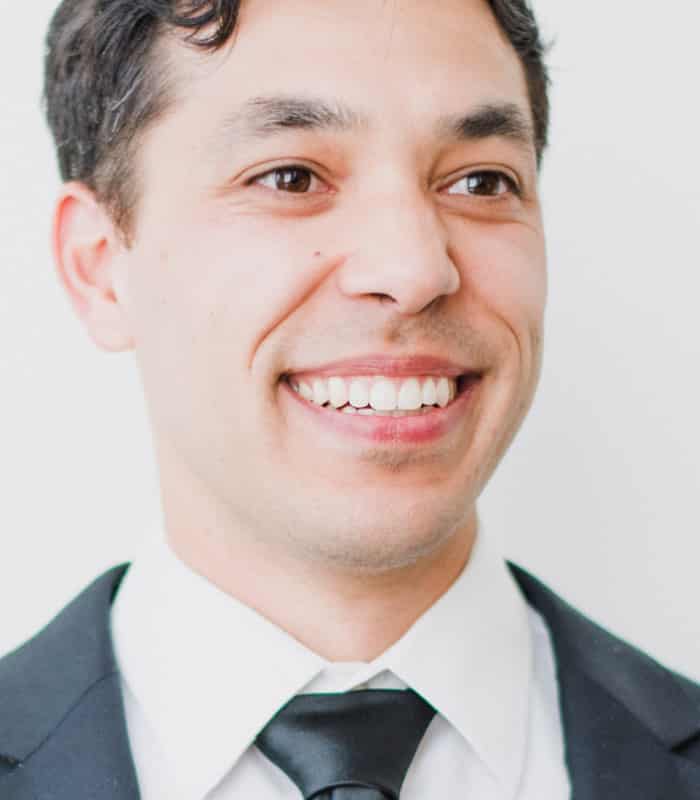Assistenza multidisciplinare per i pazienti con obesità

1° Appuntamento/Consultazione Medica per la Chirurgia Bariatrica/Perdita di Peso a Montpellier
Il primo appuntamento a Montpellier per la chirurgia bariatrica/per la perdita di peso (appuntamenti prenotabili online).
Arrivi per la tua prima consultazione chirurgica, inviata dal tuo medico di base/familiare o da uno specialista, oppure hai prenotato l’appuntamento da solo.
- Lo scopo della prima consultazione è conoscerti e ascoltare ciò che hai da dire. Ci aiuta a valutare le tue aspettative e la tua capacità di aderire al programma di follow-up.
- Durante questa prima consultazione, il chirurgo è responsabile di fornirti tutte le informazioni necessarie e determinare se l’intervento che desideri intraprendere è giustificato.
- Estableceremo anche la tua storia di cambiamento del peso, i periodi massimi delle diete che hai seguito e i risultati ottenuti. In questo modo possiamo valutare la tua capacità di rispettare le regole dietetiche e l’igiene della vita.
- Successivamente, sarai incluso nel protocollo di valutazione multidisciplinare.
Valutazione Multidisciplinare per la Chirurgia Bariatrica/Perdita di Peso
Questa valutazione multidisciplinare è essenziale per garantire che ogni paziente riceva il trattamento più appropriato e sicuro per affrontare l’obesità, in considerazione delle sue condizioni fisiche, psicologiche e nutrizionali. Durante la prima consultazione chirurgica, che può essere faccia a faccia o virtuale (telefonica o videochiamata), verranno raccolte tutte le informazioni necessarie e si valuteranno gli aspetti cruciali per decidere se la chirurgia è indicata. Il resoconto della consultazione sarà inviato al tuo account Doctolib e una copia sarà inviata al tuo medico di base e a tutti i membri del team multidisciplinare.
Programma per la Prima Consultazione:
-
Informazioni Amministrative
– Nome, Cognome e Data di Nascita
– Numero di Telefono Mobile
– Indirizzo E-mail
– Tessera sanitaria con il numero di sicurezza sociale (NIR)
– Assicurazione sanitaria privata
– Certificato attuale di copertura assicurativa sanitaria privata -
Anamnesi del Paziente
– Numero di figli
– Professione e attività fisica legata alla professione
– Attività fisica: sport/tempo libero
– Impatto dell’obesità sulla qualità della vita:- Autostima personale
- Attività fisica
- Vita sociale
- Vita professionale
- Vita sessuale
-
Stile di vita sano
– Fumi? Bevi alcolici o bibite gassate? -
Abitudini alimentari
– Iperfagia (mangiare in eccesso)
– Tachifagia (mangiare troppo velocemente)
– Spuntini salati
– Spuntini dolci, consumo di grandi quantità di bibite e soft drink
– Rifugio emotivo nel cibo (notione dei « chili emotivi »)
– Storia di casi di anoressia/bulimia
– Storia dell’aumento di peso (pubertà, adolescenza, gravidanza, interruzione dell’attività fisica, depressione)
– Fallimenti dietetici precedenti
– Conoscenza del cibo e delle sue caratteristiche -
Esame medico approfondito
– Allergie, precedenti interventi chirurgici e storia medica
– Comorbidità legate all’obesità: sindrome delle apnee notturne, dislipidemia, diabete, steatoepatite, ipertensione, artrosi disabilitante e altre patologie -
Registrazione dei dati
– Peso massimo e attuale (Kg) e circonferenza vita (m)
– Peso ideale, eccesso di peso da perdere
– Indice di Massa Corporea (BMI) (Kg/m²)
– Eccesso di BMI da perdere per raggiungere un BMI normale di 24 Kg/m² -
Decidere se giustificare una valutazione multidisciplinare più completa prima di procedere con la chirurgia bariatrica/perdita di peso.

Team Multidisciplinare: gli specialisti del Centro IGEA SOS Obésité
-
Endocrinologo
– Valutazione ormonale e metabolica
– Cortisolo, ormoni tiroidei, insulina a digiuno
– Colesterolo (totale, HDL, LDL), trigliceridi
– Acido urico
– Funzione epatica, Hb, Fe, ferritina, albumina, TP
– Monitoraggio di eventuali carenze nutrizionali -
Dietista
– Studio delle abitudini alimentari del paziente
– Correzione degli errori alimentari
– Rilevamento di comportamenti alimentari compulsivi
– Nutrizione pre-operatoria e follow-up post-operatorio -
Psicologo
– Valutazione della motivazione del paziente
– Capacità di adattamento al cambiamento del comportamento
– Trattamento dei disturbi alimentari e psicologici
– Follow-up psicoterapico pre e post-operatorio -
Gastroenterologo
– Fibroscopia gastro-duodenale (GDF) per verificare integrità esofagea e gastrica
– Trattamento di patologie come la gastrite, ulcere, infezione da Helicobacter pylori
– Funzione epatica, ecografia epatica e misurazione della dimensione del fegato -
Pulmonologo
– Polisonnografia per la sindrome delle apnee notturne (SAS) -
Rheumatologo
– Ricerca di complicazioni meccaniche: discopatia e osteoartrite invalidante -
Cardiologo
– Monitoraggio della salute cardiovascolare pre-operatoria -
Anestesista
– Valutazione pre-operatoria per escludere controindicazioni all’anestesia
– Due consultazioni con l’anestesista: prima della fibroscopia gastrica e due settimane prima dell’intervento -
Sofrologista
– Supporto al benessere psicologico del paziente
– Programma di educazione terapeutica individuale o collettivo per affrontare il percorso pre e post-operatorio
Questa valutazione multidisciplinare assicura che ogni paziente riceva un trattamento completo e personalizzato, affrontando aspetti fisici, psicologici e nutrizionali per garantire un successo duraturo dopo l’intervento di chirurgia bariatrica.
Seconda Consultazione Medica con il Chirurgo
La Seconda Consultazione con il Chirurgo
Se la valutazione multidisciplinare risulta favorevole, l’intervento chirurgico può essere programmato.
Lo scopo di questa seconda consultazione (e talvolta di una terza) con il chirurgo è di:
-
Approfondire i dettagli della chirurgia bariatrica/perdita di peso;
-
Prendersi il tempo necessario per spiegare chiaramente gli obiettivi da raggiungere in termini di controllo del peso e remissione delle comorbidità;
-
Spiegare i vantaggi e gli inconvenienti della tecnica chirurgica scelta in modo collegiale, poiché questa risulta essere la più adatta alle tue esigenze;
-
Assicurarsi che tu abbia compreso e accettato i rischi della chirurgia bariatrica/perdita di peso, e l’importanza di un follow-up medico e chirurgico a lungo termine.
Durante la consultazione, una lettera verrà redatta per il tuo medico di base, comunicandogli le informazioni che abbiamo scambiato riguardo:
- I risultati della valutazione;
- La strategia chirurgica proposta;
- I termini e i dettagli sui benefici attesi;
- I rischi legati all’intervento;
- L’importanza cruciale di un follow-up regolare.
Il chirurgo sarà disponibile per rispondere a qualsiasi tua domanda.
Potrai fare ulteriori domande al tuo medico di base, che collabora con noi. Il tuo medico potrà verificare con te se hai sufficiente conoscenza e informazioni per dare il tuo consenso in modo consapevole per l’intervento chirurgico bariatrico/perdita di peso.
Uso della Chirurgia Correttiva
Se necessario, è possibile ricorrere alla chirurgia correttiva. Tuttavia, tale intervento deve essere eseguito al più presto 12-18 mesi dopo l’intervento bariatrico/perdita di peso, in assenza di sotto-nutrizione, e con una perdita di peso stabilizzata.
Gravidanza e obesità
Consigli in termini di gravidanza e obesità
La chirurgia bariatrica/perdita di peso non è raccomandata per le donne in gravidanza. Tuttavia, dopo l’intervento, è fondamentale seguire alcune linee guida specifiche nel caso in cui si verifichi una gravidanza:
-
Monitoraggio Nutrizionale: Durante la gravidanza e dopo il parto, è importante che il monitoraggio nutrizionale sia effettuato dal team multidisciplinare. Questo aiuterà a garantire che la madre riceva il giusto apporto di nutrienti per la sua salute e per quella del bambino.
-
Supplementi Alimentari: È raccomandato l’uso di integratori alimentari, tra cui:
- Ferro
- Folati
- Vitamina B12
- Vitamina D
- Calcio (particolarmente dopo un bypass gastrico, che è una chirurgia bariatrica malassorbitiva)
-
Allentamento della Banda Gastrica: Se è stato effettuato un intervento di chirurgia con banda gastrica, potrebbe essere necessario allentarla in caso di gravidanza, per evitare complicazioni.
-
Pianificazione di una Gravidanza Futura: In caso di una gravidanza pianificata in futuro, è fondamentale:
- Una valutazione clinica e biologica per monitorare lo stato nutrizionale.
- Iniziare ad assumere i folati come integratore alimentare, in conformità con le raccomandazioni internazionali, non appena si pianifica una gravidanza.
L’approccio nutrizionale e il supporto medico sono essenziali per garantire una gravidanza sana dopo un intervento di chirurgia bariatrica e per affrontare le sfide legate all’obesità durante la gravidanza.
Riferimenti bibliografici
- Obesity surgery in adults ; HAS guidelines 2009 (Online pdf)
- What you need to know before making a decision! HAS guidelines (Online pdf)
- Compliance with a multidisciplinary team meeting’s decision prior to bariatric surgery protects against major postoperative complications
Lionel Rebibo 1, Virginie Maréchal 2, Ileana De Lameth 3, Abdennaceur Dhahri 1, Isabelle Escoffier 4, Jean-Daniel Lalau 5, Jean-Marc Regimbeau Surg Obes Relat Dis 2017 Sep;13(9):1537-1543.
doi: 10.1016/j.soard.2017.05.026. Epub 2017 Jun 1. - How Effective Is the Multidisciplinary Team Approach in Bariatric Surgery?
Bullen NL, Parmar J, Gilbert J, Clarke M, Cota A, Finlay IG.Obes Surg. 2019 Oct;29(10):3232-3238. doi: 10.1007/s11695-019-03975-5.PMID: 31209829 - Bariatric surgery: a best practice article.
Neff KJ, le Roux CW.J Clin Pathol. 2013 Feb;66(2):90-8. doi: 10.1136/jclinpath-2012-200798. Epub 2012 Nov 21.PMID: 23172552 - Supervised exercise following bariatric surgery in morbid obese adults: CERT-based exercise study protocol of the EFIBAR randomised controlled trial.
Villa-González E, Soriano-Maldonado A, Artero EG; EFIBAR Study Group. BMC Surg. 2019 Sep 5;19(1):127. doi: 10.1186/s12893-019-0566-9.PMID: 31488115 - Medical follow up after bariatric surgery: nutritional and drug issues. General recommendations for the prevention and treatment of nutritional deficiencies.
Ziegler O, Sirveaux MA, Brunaud L, Reibel N, Quilliot D.Diabetes Metab. 2009 Dec;35(6 Pt 2):544-57. doi: 10.1016/S1262-3636(09)73464-0.PMID: 20152742 - Preoperative Weight Loss Before Bariatric Surgery—The Debate Continues
Micaela M. Esquivel, MD1; Dan Azagury, MD1
JAMA Netw Open. 2020;3(5):e204994. doi:10.1001/jamanetworkopen.2020.4994 - The effects of supervised exercise training 12-24 months after bariatric surgery on physical function and body composition: a randomised controlled trial.
Herring LY, Stevinson C, Carter P, Biddle SJH, Bowrey D, Sutton C, Davies MJ.Int J Obes (Lond). 2017 Jun;41(6):909-916. doi: 10.1038/ijo.2017.60. Epub 2017 Mar 6.PMID: 28262676 - The Role of Routine Upper Gastrointestinal Endoscopy Before Bariatric Surgery
Samuel R Fernandes , José Velosa ; Obes Surg 2016 Sep;26(9):2105-2110. ; PMID: 26750117 ; DOI: 10.1007/s11695-016-2056-9 - Preoperative Evaluation in Bariatric Surgery.
Schlottmann F, Nayyar A, Herbella FAM, Patti MG.J Laparoendosc Adv Surg Tech A. 2018 Aug;28(8):925-929. doi: 10.1089/lap.2018.0391. Epub 2018 Jul 13.PMID: 30004270 - Perioperative management of obstructive sleep apnea in bariatric surgery: a consensus guideline.
de Raaff CAL, van der Wielen N, van Wagensveld BA. Surg Obes Relat Dis. 2017 Jul;13(7):1095-1109. doi: 10.1016/j.soard.2017.03.022. Epub 2017 Mar 30.PMID: 28666588 - Psychologic issues in bariatric surgery–the surgeon’s perspective.
Puzziferri N.Surg Clin North Am. 2005 Aug;85(4):741-55, vi. doi: 10.1016/j.suc.2005.04.003.PMID: 16061083 - Cardiac structure and function before and after bariatric surgery: a clinical overview.
Lascaris B, Pouwels S, , Buise MP.Clin Obes. 2018 Dec;8(6):434-443. doi: 10.1111/cob.12278. Epub 2018 Sep 12.PMID: 30208261 - Endocrine and metabolic complications after bariatric surgery.
Jammah AA.Saudi J Gastroenterol. 2015 Sep-Oct;21(5):269-77. doi: 10.4103/1319-3767.164183.PMID: 26458852 - Effects of Bariatric Surgery in Obese Patients With Hypertension: The GATEWAY Randomized Trial (Gastric Bypass to Treat Obese Patients With Steady Hypertension).
Schiavon CA, , Amodeo C, Bortolotto L, Ikeoka D, Drager LF, Cavalcanti AB, Berwanger O.Circulation. 2018 Mar 13;137(11):1132-1142. doi: 10.1161/CIRCULATIONAHA.117.032130. Epub 2017 Nov 13.PMID: 29133606


